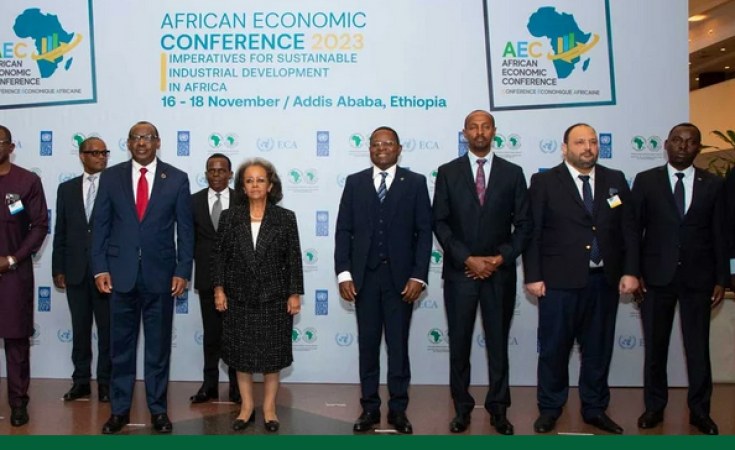African countries should bolster skills training and implement the right policies to tap the benefits of the 4th Industrial Revolution, experts said at the 2023 Africa Economic Conference
Africa can leap into the Fourth Industrial Revolution (4IR) to drive sustainable industrialization, employment and transformation by investing in human skills and implementing policies supporting digital technologies, experts attending the African Economic Conference 2023 said.
The 4IR is the ushering in of digitalization, artificial intelligence (AI), cloud computing, robotics, and 3D printing among other innovative digital technologies, succeeding the first, second and third industrial revolutions.
But could Africa leapfrog the third, moving from the second to the fourth industrial revolution, and what are the implications of this for the continent's development? This was the question posed by the moderator of a session on 4IR, Raymond Gilpin, Chief Economist at the Regional Bureau for Africa, United Nations Development Programme (UNDP).
Gilpin said the 4IR was not exclusively about industrialization in Africa but it is about how changes in the use of technology could disrupt, revitalize and spark exponential growth.
Panel participants at the session highlighted that Africa had the opportunity to leapfrog to the 4IR and accelerate its industrialization but it has to do the right things to benefit from this technological transformation.
Mavis Owusu-Gyamfi, Executive Vice-President of the African Center for Economic Transformation (ACET) said the 4IR requires a rethink on adopting the new technologies which could be seen as an opportunity, not a threat.
"We like to talk about leapfrogging but what we have done is to leapfrog from low productive agriculture to low productive services, that is not going to generate the jobs that we desperately need," Owusu-Gyamfi said, adding that Africa needs a deeper understanding of the 4IR in order to harness its benefits.
Much of Africa is regressing in transformation, according to ACET's recently launched Africa Transformation Index, covering 30 countries representing 86.5% of the continent's GDP. Some key transformation challenges facing Africa include low labour productivity, especially due to low skill levels. This is driven by a mismatch between skills and education systems, and what companies need. Owusu-Gyamfi called for the diversification of Africa's export products to boost global competitiveness.
Natalie Jabangwe, Chief Digital Officer at financial services firm Sanlam, said that Africa needs to create meaningful work and boost skills development to accelerate industrialization and reverse the problem of low skills. In addition, Africa needs to create formal jobs that can be scaled up, as well as improve the quality of service to be globally competitive.
"Africa needs to focus on creating work through sustainable and world-class platforms. When we start talking about platforms this leads us into the industrial revolution and particularly the tech age," Jabangwe told the session on 4IR.
Africa's manufacturing value as a share of the economy has declined over the past 40 years, said Rita Babihuga-Nsanze, Chief Economist and Director of Research and Strategy at the Africa Finance Corporation (AFC).
She said that in the early 1980s, the manufacturing value as a share of GDP was around 18% which declined to 10% of GDP in 2011. This has been attributed to a combination of a lack of capital, infrastructure, energy and intentionality, and poor industrial policies.
The AFC has promoted special economic zones (SEZs) as a development model for African countries to ramp up industrialization. Babihuga-Nsanze said SEZs can serve as an motors that help turn around industrial sectors.
Pazion Cherinet, CEO and Founder of OrbitHealth.co and Orbit Innovation Hub, said Africa has an opportunity to leverage from the 4IR but there is a lack of immersion in the technology available in Africa.


